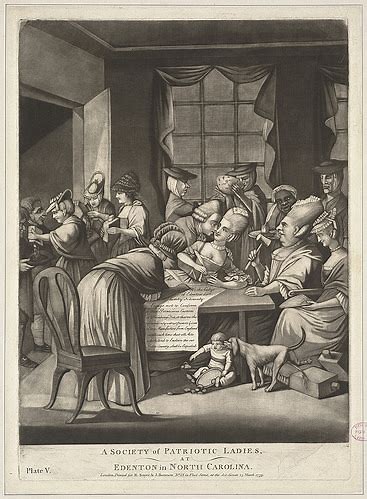The Real Story Behind the Boston Tea Party
 The American colonists, like their British counter-parts, took their tea drinking seriously, consuming great quantities. The East India Tea Company, a British enterprise, held a monopoly on the American Trade. Nevertheless, Dutch traders managed to capture much of the colonial market by offering lower prices. Yet, two factors kept the price of tea high. First, the colonists paid a middle-man fee to English merchants who re-exported tea to America. Secondly, when Parliament repealed the Townshend duties, they retained the import tax on the tea as a symbol of their right to legislate in the colonies. In 1773, when a mismanaged and floundering East India Tea Company came to Parliament, they hoped for legislation that would bail them out. The Tea Act of 1773 allowed the company to eliminate the English merchant middlemen and sell directly to the colonists. Even with the tea tax still in effect, English tea would be cheaper than its competitor. The British anticipated few complaints over the new arrangement. Instead, rumors spread that Parliament intended to drive out foreign teas and assure that the East India Company have a monopoly, thus allowing it to raise prices. In other words, the colonists believed that the Tea Act was an excuse to collect the tax on tea thereby establishing a precedent for new taxes on British goods. The new litmus test of colonial patriotism was whether one consumed the tea. The burden seemed to fall on women. In South Carolina, the Presbyterian minister, William Tennent III insisted that women could save the colonies "from the Dagger of Tyranny" if they gave up tea drinking. Tennant also traveled around trying to convince Loyalists to join the Patriot cause. In North Carolina, the women accepted the challenge when on October 25, 1774, after the Boston Tea Party of cargo dumping occurred, some fifty-one women gathered at the Edenton home of Elizabeth King and signed an agreement to boycott all British-made goods and products. This agreement set the boycott in motion in other American colonies. Source: Travel Journal And Album Of Collected Papers Of William Tennent III, 1740-1777.
The American colonists, like their British counter-parts, took their tea drinking seriously, consuming great quantities. The East India Tea Company, a British enterprise, held a monopoly on the American Trade. Nevertheless, Dutch traders managed to capture much of the colonial market by offering lower prices. Yet, two factors kept the price of tea high. First, the colonists paid a middle-man fee to English merchants who re-exported tea to America. Secondly, when Parliament repealed the Townshend duties, they retained the import tax on the tea as a symbol of their right to legislate in the colonies. In 1773, when a mismanaged and floundering East India Tea Company came to Parliament, they hoped for legislation that would bail them out. The Tea Act of 1773 allowed the company to eliminate the English merchant middlemen and sell directly to the colonists. Even with the tea tax still in effect, English tea would be cheaper than its competitor. The British anticipated few complaints over the new arrangement. Instead, rumors spread that Parliament intended to drive out foreign teas and assure that the East India Company have a monopoly, thus allowing it to raise prices. In other words, the colonists believed that the Tea Act was an excuse to collect the tax on tea thereby establishing a precedent for new taxes on British goods. The new litmus test of colonial patriotism was whether one consumed the tea. The burden seemed to fall on women. In South Carolina, the Presbyterian minister, William Tennent III insisted that women could save the colonies "from the Dagger of Tyranny" if they gave up tea drinking. Tennant also traveled around trying to convince Loyalists to join the Patriot cause. In North Carolina, the women accepted the challenge when on October 25, 1774, after the Boston Tea Party of cargo dumping occurred, some fifty-one women gathered at the Edenton home of Elizabeth King and signed an agreement to boycott all British-made goods and products. This agreement set the boycott in motion in other American colonies. Source: Travel Journal And Album Of Collected Papers Of William Tennent III, 1740-1777.South Carolina Wills and Estates
| SPECIAL GENEALOGY OPPORTUNITY NOW for yourself and friends!
$7 (auto expires after 1-month) Try it out now to see if you can find your ancestors |

|
No comments:
Post a Comment